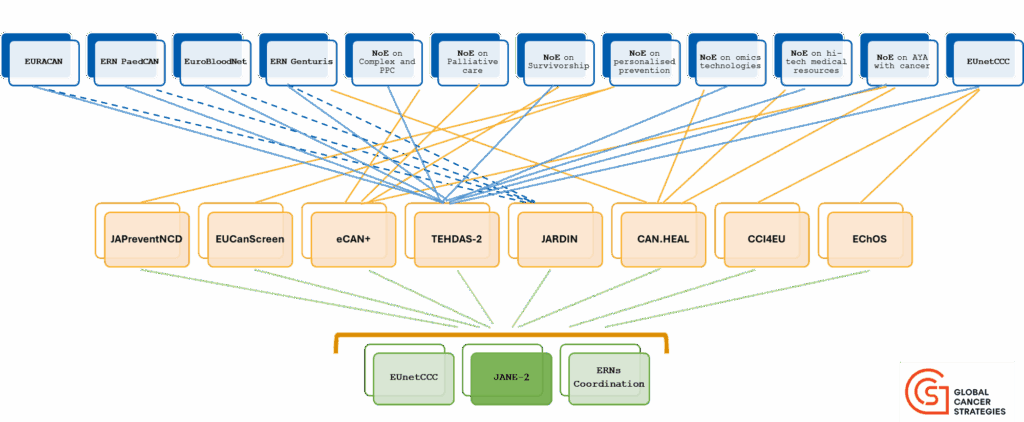EU Health Policy Platform Restricted Network
JANE-2 will collaborate and develop synergies with ongoing EU Joint Actions, projects and initiatives following Europe’s Beating Cancer Plan. To enhance this collaboration, JANE-2 has launched a restricted network EU Health Networks – Synergies and Challenges, hosted on the European Commission’s Health Policy Platform, with the support of DG SANTE and HaDEA , bringing together 14 cancer-related Joint Actions, EU projects and ERNs (ECHoS, JARDIN, TEHDAS-2, CAN.HEAL, eCAN Plus, EUCanScreen, JA PreventNCD, CCI4EU, EURACAN, ERN-PaedCAN, ERN-EuroBloodNet, ERN GENTURIS, EUnetCCC and JANE-2).

Aim of the Restricted Network: The aim of the restricted network will be to jointly discuss the synergies and to tackle challenges experienced by joint actions, EU projects and ERNs, while developing new EU Health Networks. JANE-2 has already completed the difficult exercise of highlighting 13 questions that need to be addressed while developing the seven Networks of Expertise (JANE’s policy document, Green Paper).
Why is this important: As JANE-2 is a joint action focusing on creating seven Networks of Expertise (NoEs) that will function at both EU and national levels, including via comprehensive cancer centres, it is crucial for all current and future EU projects (and networks) that are directly or indirectly connected to the seven Networks of Expertise on cancer, to have a way of communicating the needs, challenges and jointly discussing solutions specifically pertaining to EU health networks. As the only way forward is together.



